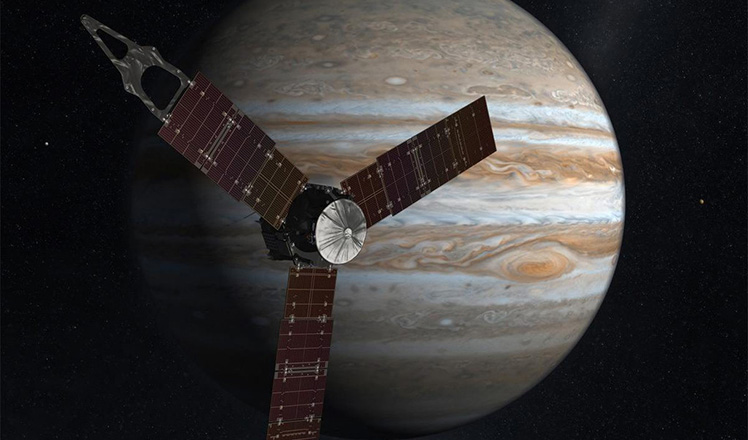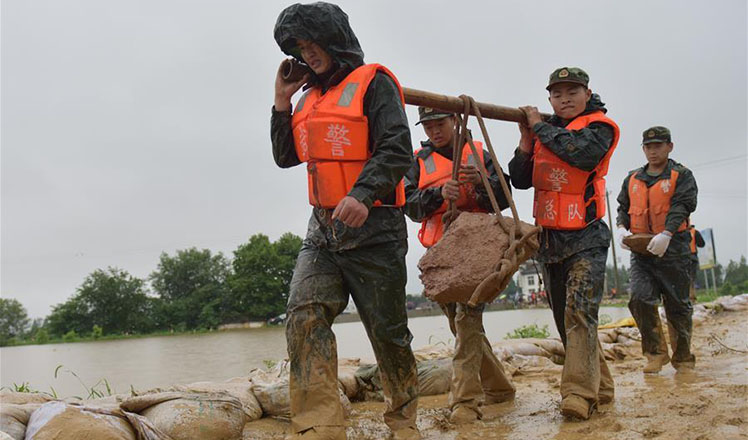14 new satellites in orbit will help warn of disasters
Updated: 2016-07-05 07:45
By Zheng Jinran(China Daily)
|
||||||||
China will be among a handful of nations that can build two types for monitoring entire globe
China will put another 14 weather satellites into service by 2025, up from the current seven, in a bid to better monitor weather patterns to benefit society.
Since 1988, China has launched 14 satellites in its Fengyun series for meteorological observation and related services. Of those, only seven are still in operation, Zheng Guoguang, head of the China Meteorological Administration, said on Monday.
Together, all the satellites, both geostationary and orbiting, are expected to provide complete global weather monitoring and put China on the short list of countries that build both types, said Yang Baohua, deputy manager of China Aerospace Science and Technology Corporation.
The United States and Europe also build both types, Yang said.
Wu Yanhua, deputy head of the State Administration of Science, Technology and Industry for National Defense, said they would cooperate with other authorities, including the China Meteorological Administration, to make the plan work.
They made the remarks at a forum on the development of weather satellites held in Beijing on Monday.
The seven operational weather satellites are able to scan the world every 25 minutes - and certain regions every six minutes, the national meteorological authority said.
Currently, more than 2,500 domestic users, including companies and institutes, have received data from the satellites, Zheng said.
"The satellites have played an increasingly important role for the country to combat disasters and climate change, and to play a role in environmental protection," Zheng said.
They were especially effective in monitoring meteorological disasters like typhoons and torrential rains, he said.
For example, casualties caused by typhoons fell dramatically to 21 last year thanks to advanced monitoring. Casualties in the last century were as severe as 3,500 a year.
Zheng added that the satellites have observed all 415 typhoons that have formed in the western Pacific from 1998 to 2015, with timely monitoring and better accuracy in forecasting their movements.
- Eid al-Fitr celebrated worldwide
- Swedish PM looking at tightening laws after festival sex attacks
- British PM race cut to 3 hopefuls as 2 contenders exit contest
- Chinese herbalists offer free US treatment
- Obama praises Hillary's judgement hours after FBI's censure
- Rio mayor tells Olympic visitors: 'Don't expect New York or London'

 Solar-powered visitor begins orbiting Jupiter
Solar-powered visitor begins orbiting Jupiter
 Continuous rainfalls affect millions of people across China
Continuous rainfalls affect millions of people across China
 Chinese foodies' top 10 favorite restaurants
Chinese foodies' top 10 favorite restaurants
 Chinese basketball legend Wang Zhizhi bids farewell
Chinese basketball legend Wang Zhizhi bids farewell
 Iceland soccer team gets hero's welcome back home
Iceland soccer team gets hero's welcome back home
 Power giant Hanergy shows its solar concept cars
Power giant Hanergy shows its solar concept cars
 Murray downs Kyrgios; Serena powers into quarters
Murray downs Kyrgios; Serena powers into quarters
 Nanjing's Linggu temple offers best view of fireflies
Nanjing's Linggu temple offers best view of fireflies
Most Viewed
Editor's Picks

|

|

|

|

|

|
Today's Top News
Abe's blame game reveals his policies failing to get results
Ending wildlife trafficking must be policy priority in Asia
Effects of supply-side reform take time to be seen
Chinese State Councilor Yang Jiechi to meet Kerry
Chinese stocks surge on back of MSCI rumors
Liang avoids jail in shooting death
China's finance minister addresses ratings downgrade
Duke alumni visit Chinese Embassy
US Weekly

|

|







